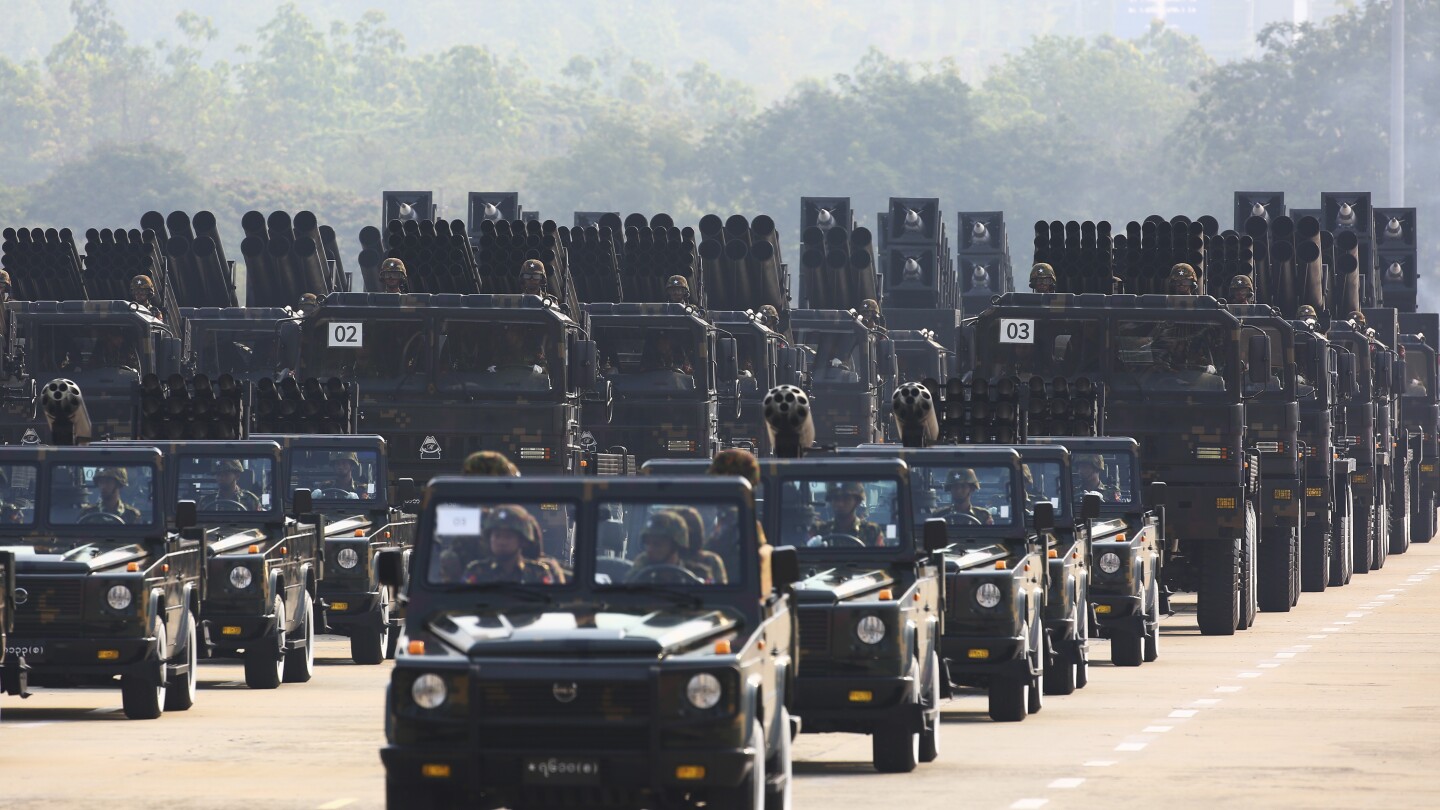BANGKOK (AP) —
The human rights group Amnesty International on Thursday accused the Myanmar military of indiscriminate killings, detaining civilians, and using air-dropped cluster munitions in response to an insurgency in the northeast and west, and demanded an investigation into war crimes.
Fighting has been raging in the northern part of Shan state since the Arakan Army, the Myanmar National Democratic Alliance Army and the Ta’ang National Liberation Army, calling themselves the Three Brotherhood Alliance, launched a coordinated offensive on Oct. 27. A little more than two weeks later, the Arakan Army also attacked outposts in its home state of Rakhine in the west.
The offensive of the well-trained and well-armed ethnic militias has been seen as a significant challenge for the army, which has struggled to contain a nationwide uprising by members of the People’s Defense Forces, a pro-democracy armed group established after the army seized power from the elected government of Aung San Suu Kyi in February 2021.
The alliance has claimed widespread victories including the capture of four border crossings in the northern part of Shan state. Soon after the fighting began, the military government acknowledged that it had lost three towns and vowed counterattacks on the alliance.
The U.N. Office for the Coordination of Humanitarian Affairs, known as OCHA, said in its report on Dec.15 that 378 civilians have reportedly died and 505 others have been injured while more than 660,000 people have been displaced by the fighting that began in late October. According to OCHA’s estimates, more than 2.6 million people have been displaced nationwide since the army takeover nearly three years ago.
In its report, Amnesty International said it had documented a nighttime airstrike by the military on Namhkam township in Shan in early December, most likely using cluster munitions that are internationally banned. Cluster munitions open in the air, releasing smaller “bomblets” across a wide area.
One of the groups in the Three Brotherhood Alliance, the Ta’ang National Liberation Army also said in a statement on Dec. 2 that the military’s jet fighters dropped cluster munitions twice at night on Namhkam township, killing one local resident, injuring five others and damaging more than 12 houses.
Amnesty International said civilians and civilian sites were indiscriminately attacked by the military in Rakhine’s Pauktaw township. The report said the army’s attacks on civilians and the use of banned cluster munitions “should be investigated as war crimes.”
“The Myanmar military has a blood-stained résumé of indiscriminate attacks with devastating consequences for civilians, and its brutal response to a major offensive by armed groups fits a longstanding pattern,” said Matt Wells, Director of Amnesty International’s Crisis Response Program. “Nearly three years after the coup, the suffering of civilians across Myanmar shows no signs of easing, even as the issue has largely fallen off the international agenda.”
Amnesty said it based its findings on interviews with 10 people from Pauktaw and analyses of photographs, video material and satellite imagery.
In a separate report released on Thursday, another monitoring group, Human Rights Watch, charged that another faction in the Three Brotherhood Alliance, the Myanmar National Democratic Alliance Army, had abducted and forcibly recruited civilians fleeing fighting in Shan.
The MNDAA, which is an armed grouping of the Kokang minority, is seeking to oust a rival faction from power by seizing the town of Laukkaing, which is the capital of what is officially called the Kokang Self-Administered Zone, in the northeast, near the border with China.
Two residents of Laukkaing told the AP on Thursday that their colleagues were forcibly taken by the MNDAA for recruitment while fleeing the fighting.
The Associated Press reached out to MNDAA representatives seeking comment but received no response.

